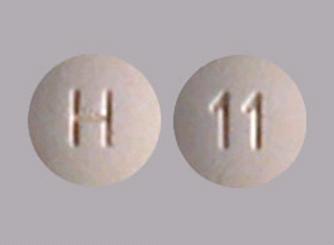Is Repaglinide Really the Game Changer in Diabetes Treatment?
- admin
- September 9, 2024
- 6:34 pm
- No Comments

In the ever-evolving world of diabetes management, medications come and go, each promising better blood sugar control.
But is Repaglinide truly the miracle diabetes treatment we’ve been waiting for, or is it just another player in an overcrowded field of drugs?
Let me get into the facts and separate the truth from the hype.
This Article Includes:
- Introduction to Repaglinide: The Basics
- Repaglinide Mechanism of Action: How Does It Work?
- Repaglinide Drug Class: What Sets It Apart?
- Repaglinide Side Effects: The Good, the Bad, and the Ugly
- Long-Term Side Effects of Repaglinide: What You Need to Know
- Repaglinide Dosages: Understanding the 1mg and 5mg Tablets
- FAQs on Repaglinide for Treating Diabetes
- Conclusion: Is Repaglinide Truly a Game-Changer?
Introduction to Repaglinide: The Basics
Repaglinide is a rapid-acting oral medication designed to manage type 2 diabetes by stimulating insulin release from the pancreas, especially around mealtimes.
Unlike longer-acting medications, it kicks in quickly—usually within 30 minutes—making it especially effective for controlling postprandial (after-meal) blood sugar spikes.
What makes Repaglinide attractive is its dosing flexibility. Patients only take it before meals, and if a meal is skipped, the dose can be skipped too—an option not typically available with drugs like sulfonylureas.
This reduces the risk of hypoglycemia, a common side effect of many diabetes drugs.
Research trials have shown that Repaglinide can significantly reduce both fasting and post-meal glucose levels, and contribute to lowering HbA1c.
In elderly patients switching from sulfonylureas such as Glipizide, improved glucose variability markers were observed without increasing the incidence of hypoglycemia.
Additional studies have found that when used in combination with other antidiabetic agents like DPP-4 inhibitors, Repaglinide continues to offer sustained glycemic control over months, with minimal side effects.
One of its unique advantages is its safety profile in patients with mild to moderate kidney impairment—a group for whom metformin might not be suitable.
Overall, Repaglinide is not just a fast-acting alternative; it is a targeted therapy for individuals needing precision control over blood sugar, especially around meals.

Repaglinide Mechanism of Action: How Does It Work?
Repaglinide belongs to the meglitinide drug class, which is designed to stimulate the pancreas to release insulin. Its primary role is to prevent post-meal blood sugar spikes by acting on the beta cells of the pancreas.
The way it works is almost like flipping a switch: as soon as you eat, repaglinide prompts insulin secretion, reducing the blood sugar surge that typically follows a meal.
Unlike some other diabetes medications, repaglinide’s action is short-lived, meaning it works best when taken right before meals and does not stay in the body long afterward.
This targeted action makes it a favorite for those who need flexibility in their meal times, but it also raises questions about whether its quick fix is enough for long-term control.
Repaglinide Drug Class: What Sets It Apart?
While repaglinide’s drug class may sound familiar, it is unique because of its short action span.
Compared to drugs like sulfonylureas, which can cause prolonged insulin release and increase the risk of hypoglycemia (low blood sugar), repaglinide is considered a gentler option.
But that is not to say it is without risks, which brings us to the side effects.
Repaglinide Side Effects: The Good, the Bad, and the Ugly
Every medication has its share of side effects, and repaglinide is no different. The most common concern with this drug is the risk of hypoglycemia.
Because it stimulates insulin release, there’s always the potential for your blood sugar to drop too low, especially if you skip meals or do not eat enough carbohydrates.
Other common side effects include:
- Weight gain: Insulin can promote fat storage, leading to unwanted pounds.
- Digestive issues: Nausea, diarrhea, and stomach discomfort can occur.
- Allergic reactions: While rare, some people experience skin rashes or itching.
Although these side effects are common, they are not experienced by everyone. It is important to weigh the benefits against the potential risks, especially if you are sensitive to blood sugar fluctuations.
Long-Term Side Effects of Repaglinide: What You Need to Know
The conversation surrounding long-term side effects of repaglinide is still a bit murky.
While there are no major red flags, it is important to note that repaglinide has not been linked to significant complications like heart disease or cancer, which some other diabetes medications have been scrutinized for.
That being said, long-term use of repaglinide can still pose risks. For example, the constant stimulation of insulin release could lead to pancreatic fatigue, where the pancreas struggles to keep up with insulin production over time.
Some research also suggests a potential link between chronic insulin stimulation and cardiovascular issues, but the data is still inconclusive.
So, while repaglinide does not appear to have any catastrophic long-term side effects, it is still wise to monitor your health regularly if you are on this medication for extended periods.
Repaglinide Dosages: Understanding the 1mg and 5mg Tablets
Repaglinide comes in various dosages, most commonly repaglinide 1mg tablets and repaglinide 5mg. These tablets are typically taken before meals, allowing the body to handle the immediate influx of glucose.
The repaglinide tab is designed to be flexible, giving patients control over their meal timing.
For some, the 1mg dose is sufficient, while others may need the higher 5mg dose, especially if they have larger or carbohydrate-heavy meals. However, the higher the dose, the greater the risk of side effects like hypoglycemia.
It is crucial to follow your doctor’s advice regarding dosage, as repaglinide should be tailored to your specific needs. Overdosing or skipping doses can lead to significant blood sugar imbalances, which can be dangerous.
FAQs on Repaglinide for Treating Diabetes
Q-1: How does Repaglinide’s rapid onset and short duration of action uniquely benefit post-meal blood sugar control?
A-1: Repaglinide stimulates insulin release quickly after ingestion and wears off rapidly, allowing precise targeting of postprandial glucose spikes without prolonged insulin stimulation. This timing flexibility can reduce the risk of late hypoglycemia, making it especially useful for patients with variable meal schedules or those prone to low blood sugar episodes.
Q-2: Can Repaglinide’s mechanism of action offer advantages for patients with varying degrees of pancreatic beta-cell function decline?
A-2: Because Repaglinide directly stimulates residual beta cells to release insulin in response to meals, it can be effective even in early to moderate beta-cell dysfunction. Its glucose-dependent action helps preserve beta-cell responsiveness without overstimulation, potentially slowing further beta-cell decline compared to some other secretagogues.
Q-3: Are there unique considerations in combining Repaglinide with other diabetes medications that impact its efficacy or safety?
A-3: Repaglinide’s metabolism via CYP3A4 enzymes means certain drugs—like some antifungals or antibiotics—can alter its blood levels, increasing hypoglycemia risk. As per bestdietarysupplementfordiabetics.com, “its short action complements longer-acting agents by controlling mealtime glucose, but careful dosing coordination is essential to avoid overlapping effects or gaps in glucose control”.
Q-4: How might Repaglinide’s flexible dosing schedule influence patient adherence and lifestyle integration?
A-4: Unlike fixed-dose therapies, Repaglinide dosing adjusts based on meal size and timing, offering patients greater control and adaptability to variable eating patterns. This flexibility can improve adherence and quality of life but requires patient education to ensure proper timing and dosing aligned with meals.
Q-5: Could Repaglinide’s impact on insulin secretion affect long-term pancreatic health differently than other insulin secretagogues?
A-5: Because Repaglinide promotes short, meal-triggered insulin release rather than continuous stimulation, it may reduce beta-cell exhaustion risk compared to longer-acting secretagogues. This pulsatile stimulation might support better preservation of pancreatic function over time, a hypothesis warranting further clinical investigation.
These FAQs highlight Repaglinide’s distinctive features and considerations, offering a nuanced perspective on its role as a potential game changer in personalized diabetes management.

Is Repaglinide Truly a Game-Changer?
So, is repaglinide the game-changer it claims to be in diabetes treatment?
Well, the answer is not black and white. While repaglinide offers a solution on how to lower blood sugar naturally using safe dietary supplements, making it appealing for many, it is not without its flaws.
The risk of hypoglycemia, weight gain, and potential long-term side effects must be considered.
Repaglinide works well for those who struggle with post-meal blood sugar spikes and need a medication that fits their irregular eating patterns.
However, it is not the miracle cure that some might hope for. Like any medication, it’s a tool in the toolbox of diabetes management, not a one-size-fits-all solution.
If you are considering repaglinide as part of your diabetes treatment plan, it is important to weigh the pros and cons, monitor your body’s response, and keep the lines of communication open with your healthcare provider.
References: